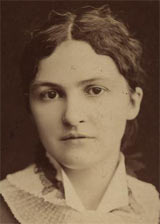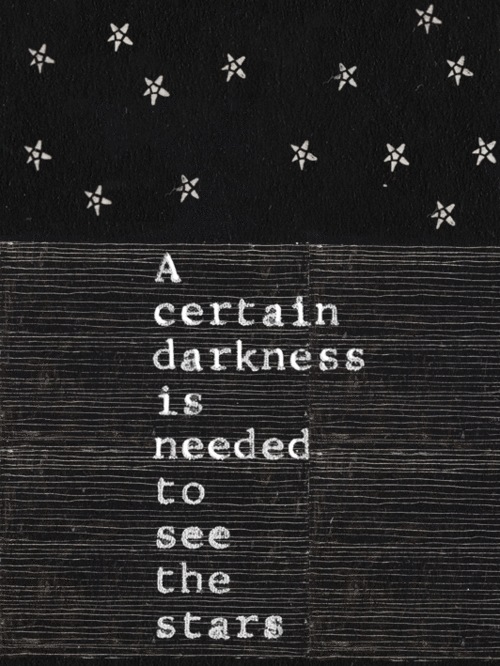Creativity and difficulty (#99)
I work in a creative profession, and am always looking for insights into how creativity works, as well as ways to get unstuck creatively to do my best work. There are a number of blogs and writers whose work I regularly follow on the topic; the work and insights of others frequently helps re-frame my perspective. Here are some insights I've gained from them. Sparring Mind is one.
If I've learned anything in nearly 12 years of dragging heavy things around cold places it's that true, real inspiration and growth only comes from adversity and from challenge, from stepping away from what's comfortable and familiar and stepping out into the unknown. -- Ben Saunders, Arctic explorer
Sparring Mind has a great collection of articles on creativity, resilience, and how to make things that matter. Worth a look.
How owning your mistakes makes the world better
What do you do when you screw up? Un-doing mistakes and righting wrongs are some of the toughest work we do as humans. But it's also some of the most valuable.
Jacob wrestling with the angel of God
Earlier this week, I had an argument with someone over the story about Senator Al Franken, about the photos and his backstage behavior during a USO tour when he was a comedian. I admit it was tough; I heard the dismissals, criticisms of his accuser's character/occupation through my own experiences with assault, humiliation and shame. But I also heard them as the mother of a teenage daughter who has been on the receiving end of unwanted male attention.
In her case, a casual friend took and posted photos of her without her permission, and refused when she said stop. Instead he attempted to shame her, tell her she needed to lighten up/be more friendly/smile more/it’s just for fun.
It’s better of course if we don't screw up. Beyond that, what happens next when we go too far and are told we screwed up is what matters most. This is the opportunity we have: own it, repair the relationship if possible and grow, or become the offended party, criticize their character, call the person names and try to convince others the person’s concerns can be dismissed because xyz.
My daughter and I talked about that; how some people use shame to try to get you to collapse your boundaries and do what they want. We talked about how people sometimes dissemble when they aren’t sure if they’re safe just saying no. It was a great conversation and I’m thankful for that. I suspect a lot of parents are having similar great conversations with their daughters and sons these days. That gives me hope.
So being a woman and the mother of a teenage girl shape what I think about Franken and the accusations against him. I’ve been angry and upset, but I’ve also been reassured by Franken’s responses. He responded by owning his behavior, like someone who is actually listening and believes the other person’s experience matters. That’s consistent with what I know about his good character, and is helping restore my trust in him as a senator responsible for representing us all.
Bottom line: when you screw up, own it. Listen, and let the other person know you’re listening. Make amends. It restores the integrity of the person you've hurt; that makes their world a little better.
It makes your world better, too. We are all “wounded healers”. This is how we grow.
At a national level, our trust in government is at an all time low. We need more senators and representatives who own their mistakes. This is also how we can tell those who actually want to serve us through their work in government vs. those who want to take advantage of us for their own purposes.
Four more holes
I was talking with a friend of mine today about the frustration of being stuck. What do you do? "I'm really not good at moving my ideas past 'stuck,'" he said.
“I feel like other people just choose and then work. I have a river of ideas that I wade in daily. They come rushing at me, swirl and burble around my legs, then go rushing on.
Other people swim down that stream (or are torn from their footing and are swept).
And I just observe and marvel at the beauty of the torrent and wish and lust and never let the water carry me.
I don’t know how to let go of the ground.”
That's the question, in't it? And I thought about my grandfather.
When he was a young man, he played the cello with a symphony orchestra. When he was older, he got a job as a tool and die worker. I always thought it was such a study in contrasts: this man who had played music directed by Shostakovitch, who had this deep love for his craft, had also spent many years happily drilling holes in sheet metal.
And more than that, he talked about them as though they were basically the same thing.
He didn't elevate one over the other. His approach to playing cello was that it was just something you did, it was a job (although it was a really nice one). Sometimes you played the cello in a big room with lots of people. Sometimes you drilled holes in sheet metal.
Creativity and craft is like that. People who are good at their craft don't love it all the time. Sometimes they don't even like it. But they do it; they do it day after day, even when it's not glamorous. Especially when it's not. And I think that being ok with that is one of the essential keys to being really good at anything.
As long as your dream gig is rainbows and unicorns, it will remain unapproachable. Maybe if you looked at it more like it was drilling holes in sheet metal, you'd get over your fantasies about it and realize that it's precisely when it feels like another day drilling holes in sheet metal that you're succeeding at it.
So I told my friend this:
“Every single fabulous motherfucker I’ve ever read from Bukowski to Leonard Cohen says doing their art is horrible and hard and they suck at it and it’s a long slog and takes too long and it’s drilling holes in fucking sheet metal.”
"But why shouldn’t my work be hard?," Cohen said.
“Almost everybody’s work is hard. One is distracted by this notion that there is such a thing as inspiration, that it comes fast and easy. And some people are graced by that style. I’m not. So I have to work as hard as any stiff, to come up with my payload.”
Leonard Cohen, photo by gaët
You can quit tomorrow.
Today, drill four more holes. Grandpa would approve.
The light that got lost
John's funeral was today. It was hard to let go of my friend, and I definitely feel as though there is a big hole where his presence used to be, as though something important was lost.
“The world is blue at its edges and in its depths. This blue is the light that got lost. Light at the blue end of the spectrum does not travel the whole distance from the sun to us. It disperses among the molecules of the air, it scatters in water.” - Rebecca Solnit
Rebecca Solnit, in a Field Guide to Getting Lost, says light at the blue end of the spectrum gets most “lost”, most scattered. But “the light that gets lost gives us the beauty of the world, so much of which is in the color blue.”
I was thinking of this as I recalled the holes left in my and my friends’ lives with the passing of our friend this past week. All of us feel it acutely, we realize something is missing, in ourselves, in our friendships, in our workplace. It’s hard to say how these holes will change us, what has been lost.
But I also noticed some new things. At the funeral I heard “I didn’t know Steve was such a good speaker.” I heard “I didn’t know John was such a doting father, that he and Steve’s daughter were so close.” I heard “I didn’t know Steve’s wife was so wonderful.” It was as if by John’s absence we were able to finally see some of these things, make these connections. I thought about how the loss of John gave us some beautiful things to discover just as Solnit’s blue light gives us the beauty of the world.
Women, Lands' End and Election 2016
 I suspect someone(s) at Lands' End really didn't think this one through.
I suspect someone(s) at Lands' End really didn't think this one through.
Lands' End, neglecting to internalize one of the key takeaways of female empowerment that "You can be anything! But you can't be everything." pulled its Gloria Steinem interview from its ad campaign and catalog in response to public criticism and a boycott. Which has led to public criticism and a boycott.
This article by Ad Age is two years old, but it's a good overview of the issues companies face when trying to incorporate female empowerment or feminism in their brand messaging. As Lands' End is discovering, you have to know your customers; if 26% of Americans think "feminist" is an insult, featuring their patron saint in an ad campaign is bound to bring down the thunder. And yet we are in a period with more single, wage-earning, empowered women than ever before, in an election season that is turning out to be all about women (hello Hillary, Bernie, Melania).

Lands' End will have to do some masterful tap dancing to extricate itself from this combination of bandwagon boorishness, poor planning, worse timing, and thoughtless response. It may already be too late. However, there's a remarkable opportunity here for their competitors. As other clothing retailers step in, it will be interesting to see what they add to the powerful conversations taking place during this election season about feminism and female empowerment.
It looks as though the Lands' End faux pas may just have solidified women's empowerment as the number one issue this election season (it was already trending that way anyway). Should be interesting to see where it goes from here.
What is The Thing For Which You Struggle?
Honoring the Struggle that Requires Everything
An individual has not started living until he can rise above the narrow confines of his individualistic concerns to the broader concerns of all humanity. - Martin Luther King, Jr.
Memorial Day is a day of remembrance for those who died in the fight for our good and lasting freedoms. It’s for those who literally gave it their all, whose struggle required everything of them. Some of these knew they were going to die, and did it anyway. Some endured great pain, and did it anyway.
For the fearful, the pained, those knowingly going to die, the struggle was about more than themselves.
Remembering those who struggled and lost everything is important not just because freedom isn’t free. Remembering them and their struggle is essential because we all struggle and fight in life, some of us more than others, and the knowledge that this struggle might require everything of us is part of making it real and present for each of us.
But it’s also essential because the lesson of these victorious dead is to make that struggle count for something greater than simply removing pain or discomfort. Those who gave everything to make their time on this planet count for something greater can teach us valuable lessons about the best life, about struggling for something worth the struggle. That includes the struggle against war and violence.
That said, in my view Memorial Day isn’t about glorifying war or armed conflict. I believe that is too narrow a view.
 Memorial Day is about courage in the face of violence and death (which requires being present), and about thinking beyond ourselves, to make our inevitable life struggles count for much more than ourselves and our immediate families. That struggle even unto death might be the struggle of a soldier. It is also the struggle and courage of the peaceful protester, the civil disobedient, the evangelist who continues to speak his truth. It is the struggle of the field nurse who brings broken soldiers back to health, time and again despite its apparent futility, to give back hope.
Memorial Day is about courage in the face of violence and death (which requires being present), and about thinking beyond ourselves, to make our inevitable life struggles count for much more than ourselves and our immediate families. That struggle even unto death might be the struggle of a soldier. It is also the struggle and courage of the peaceful protester, the civil disobedient, the evangelist who continues to speak his truth. It is the struggle of the field nurse who brings broken soldiers back to health, time and again despite its apparent futility, to give back hope.
To me, Memorial Day is a day to decorate the graves of these people too. Because if all we valorize and decorate are the graves of those who died fighting in armed conflicts, I believe we are selling our humanity short. Courage is courage, both on and off the battlefield.
 Human rights activist Stephane Hessel, who was a concentration camp survivor and a redactor of the Universal Declaration of Human Rights, wrote in his tract Indignez Vous!
Human rights activist Stephane Hessel, who was a concentration camp survivor and a redactor of the Universal Declaration of Human Rights, wrote in his tract Indignez Vous!
We must realize that violence turns its back on hope. We have to choose hope over violence—choose the hope of nonviolence. That is the path we must learn to follow. The oppressors no less than the oppressed have to negotiate to remove the oppression: that is what will eliminate terrorist violence. That is why we cannot let too much hate accumulate… To you who will create the twenty-first century, we say, from the bottom of our hearts, TO CREATE IS TO RESIST. TO RESIST IS TO CREATE.
Looking beyond war, behind the war machine to truly honor those who gave their lives courageously for the great gift of freedom we enjoy requires, in my view, understanding their struggle and courage in this context. And it demands that we also view Memorial Day as a day to honor those for whom the struggle and sacrifice was in the service of nonviolent protest, in the service of love and peace.
Ralph Waldo Emerson said
Whatever you do, you need courage. Whatever course you decide upon, there is always someone to tell you that you are wrong. There are always difficulties arising that tempt you to believe your critics are right. To map out a course of action and follow it to an end requires some of the same courage that a soldier needs. Peace has its victories, but it takes brave men and women to win them.
I believe that the more we honor and seek to emulate these struggles-in-the-face-of-death for something greater, the better our communities, cities, and country will be, and the better we ourselves will become.
This is your path
This is your path. A coupla Sundays ago I joined the Fox Valley Marathon group on an 18 mile training run. It was an out-and-back run along the river trail, with a turn-around point in Aurora. Unfortunately, the turn-around point wasn’t marked, so several of us didn’t quite know when to turn around and head back. Through my own mis-calculation, I ended up going 1.5 miles(!) past the turn-around (oopsies), which added three miles to an already long training run. Ack.
- A lot of really fit runners of all ages, shapes and sizes enjoying themselves and making an 18 mile run look like a stroll through the park.
- My friend hobbling to a park bench with a broken foot after he stepped on a walnut at mile 8.
- Several runners pass me with looks of dogged determination and laser-like focus.
Can you tell I was comparing myself? As much as we try not to do it, it’s easy to do, particularly in situations that are new, or when we lack confidence.
The lesson: it helps to remind myself of two things. First, that we are all one walnut shell away from being out for the season. Stuff happens. And second, preparing and focusing on my own situation (starting where I am) will serve me better than trying to figure out how the others make it look so easy.
“Run YOUR race. Focus on YOUR work. Don’t be tempted out of envy to attempt to morph into something you’re not.” – Todd Henry
This is your path, and that is his. Run your path.
Notice to Tramps: Labor Day and the homeless
Lazarus House, my charity running partner, was founded partly in response to proposed local ordinances that would make it illegal to feed a homeless person. Recently, we have seen a dramatic increase in number of such local laws, and it's troubling. It's important to speak against these wherever they occur; they don't address the issue of homelessness, they do nothing but force the homeless into hiding.
 It's not the first time such a "solution" has been entertained in our suburban communities. Lizzie Swank Holmes, a labor organizer and writer who lived in Geneva, was writing about it back in 1886, right before she was arrested for agitating for workers' rights.
It's not the first time such a "solution" has been entertained in our suburban communities. Lizzie Swank Holmes, a labor organizer and writer who lived in Geneva, was writing about it back in 1886, right before she was arrested for agitating for workers' rights.
Lizzie Holmes and her colleague Lucy Parsons were witnesses at the Haymarket Riot trial in 1886; shortly after, Lucy's husband Albert Parsons was hanged for his involvement in the Haymarket Riot.
Lizzie co-produced and both Lizzie and Lucy wrote for The Alarm, a Chicago labor and anarchist newspaper, one of the papers at the forefront of the movement to adopt an eight hour work day. On April 24, 1886, Lizzie wrote a short piece, Notice to Tramps:
In a beautiful town, not far from Chicago, lives a large class of cultivated, well-informed people. They have Shakespeare, Lowell, Longfellow and Whittier at their tongues’ ends, and are posted in history and grow enthusiastic over the wickedness of the safely abolished institutions of the past. They say eloquent things about old fugitive slave laws, etc., which make it criminal to feed and shelter a starving human being if he were black. Posted at the roadside, in the hotels and stores, is a ‘Notice to Tramps,’ an abominable document which compares well with the old notices to runaway negroes which used to deface similar buildings. It is against the law to feed a tramp. You are liable to a fine if you give a cup of coffee and a piece of bread to a fellow-man who needs it and asks you for it. This is a Christian community, under the flag of the free. Look out, you wretched slaves. If, after toiling through your best years, you are suddenly thrown out of a job along with thousands of others, do not start out to hunt for work, for you will strike plenty of such towns as this. You must not walk from town to town. You must not stay where you are in idleness - you must move on. You must not ride - you have no money, and those tracks and cars you helped to build are not for such as you. You must not ask for anything to eat, or a place to sleep. You must not lie down and die, for then you would shock peoples’ morals. What are you to do? Great heavens! Jump into the lake? Fly up into the air? Or stay - have you a match about you?
We must not let history repeat itself. People who work for a living should be able to make enough to eat and house themselves. Feeding the homeless must not be criminalized. Our hard fought social safety nets must be preserved.
Our community's proud history includes stops on the Underground Railroad as well as abolitionist and labor organizers. Lizzie and Lucy saw that fair labor laws were the foundation to a just society, one that supports the basic rights and dignity of every person in our community.
As we enjoy our Labor Day rest, we must remember that this rest was hard fought and hard won, and only came because locals like Lizzie Swank Holmes spoke up.
A certain darkness
If I've learned anything in nearly 12 years of dragging heavy things around cold places it's that true, real inspiration and growth only comes from adversity and from challenge, from stepping away from what's comfortable and familiar and stepping out into the unknown. - Ben Saunders, Arctic explorer
 Failing, and failing, and failing. And getting up.
Failing, and failing, and failing. And getting up.
When things are terrible, messy, painful, it's not much comfort to know that growth comes from adversity.
Even knowing this truth intellectually, even when you really know it's true, it still stinks. Last Saturday I ran 16 miles, and it was not a good run. It was hard. I was very tired, hadn't been sleeping well and had been under a lot of stress the prior week. Couldn't prepare as well as I usually do for a long run. I knew it was going to be tough.
I also knew that marathon training is about "learning how to run when you're tired", a marathon coach once said. How many other things in life can be about that? Probably quite a few.
"Our failures make us vulnerable to transformation in a way the good we do cannot," says Sr. Maryann Mueller, Justice and Peace Coordinator for the Felician Sisters of North America.
So the purpose of long, long training runs, the ones I'm doing on these last weekends before the race, is to build capacity. But it's also to fail. To get to the difficult place. To be tired, and keep going. Walk for a while, stop if you need to. Then start again. Run some more.
But there are stars there, in that darkness. Sometimes when things are difficult, you see them better.
Someone gave me part of their pb&j sandwich. Someone else gave me some of their water. Several someones high-fived me near the end and encouraged me. I didn't know any of these people, they were just other runners, stopping and starting over and over again themselves. I appreciated those simple kindnesses so much. They reminded people can be pretty awesome.
That's why the corollary to "a certain darkness is needed to see the stars" is compassion. When things are difficult for you, if you can gather the strength to give someone some of your water, or can appreciate and receive that gift, it becomes easier to start again. We find hope in each other's small acts.







